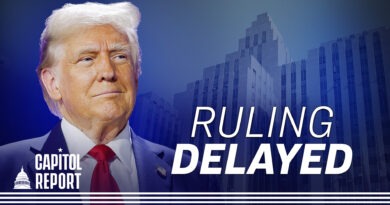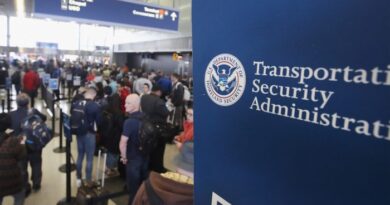TikTok Requests Court to Suspend Ban While Pursuing Appeal to Supreme Court
On December 9, TikTok and its parent company ByteDance filed a request with a court for an emergency injunction against a law mandating that TikTok sell itself to a company not owned by foreign adversaries by January 19, 2025, or shut down operations in the United States.
Last week, a three-judge panel of the U.S. Court of Appeals for the District of Columbia upheld the Protecting Americans from Foreign Adversary Controlled Applications Act (PAFACA), which petitioners have contested as unconstitutional, thereby continuing the 270-day countdown for divestment or prohibition.
The petitioners argue that failing to secure an injunction would mean shutting down “one of the Nation’s most popular speech platforms—for its more than 170 million domestic monthly users on the eve of a presidential inauguration.”
TikTok seems to be counting on President-elect Donald Trump possibly taking a different stance on the situation.
“An injunction is particularly warranted as it would provide the incoming Administration time to assess its position—which could render both the impending harms and the necessity for Supreme Court review moot,” the petition argues.
During Donald Trump’s first term, he signed an executive order to ban TikTok, but this never materialized as it faced challenges and was halted on administrative grounds. The Biden administration continued the work begun by Trump, holding numerous meetings with TikTok and ByteDance in an effort to resolve the national security concerns without requiring divestiture.
While campaigning for his second term, Trump indicated that he opposed a ban on TikTok, suggesting he could facilitate the sale of the platform to an American company.
The petitioners contend that the 270-day timeline set by the law indicates that the national security threat is not “imminent” and that an injunction or pause in the countdown would have no impact.
They describe TikTok as “one of the most significant speech platforms in the country” and assert that there is a substantial likelihood the Supreme Court will accept the appeal.
TikTok’s argument has highlighted First Amendment rights, claiming the law infringes on users’ freedom of expression. In contrast, the U.S. government maintains that the law does not address content or expression, but solely the foreign adversarial ownership. Some advocates of the law prefer a sale of TikTok over complete shutdown; however, ByteDance has argued in court that the Chinese government would not permit the sale, effectively turning the law into a ban.
Additionally, the platform faces lawsuits in Canada and France, with many alleging harm to minors and breaches of child protection regulations.





